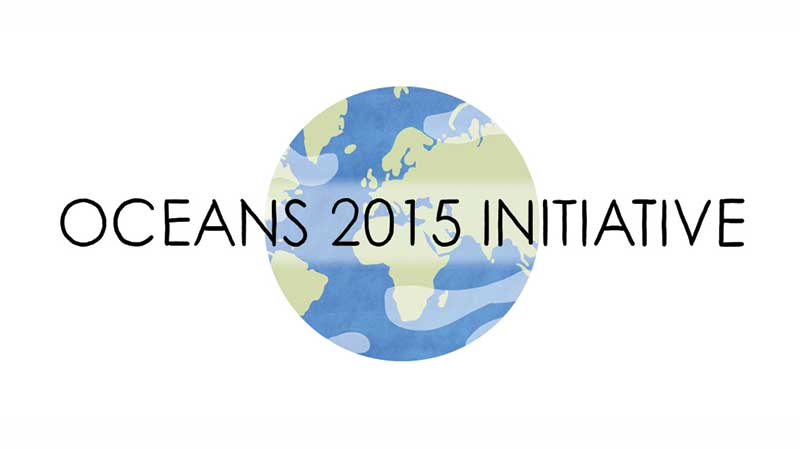The Secretariat of the Pacific Community (SPC) has contributed to a scientific paper published by the Oceans 2015 Initiative in Science magazine and launched on the eve of the "Our common future under climate change" scientific conference in Paris.
The paper evaluates and compares the risks of impacts on marine and coastal ecosystems and the services they provide under two potential carbon dioxide (CO2) emission pathways over this century.
"There are many ways to support coastal communities in dealing with the impacts of ocean warming and acidification. But most of the options we have in-hand become less effective, more uncertain and more costly above the plus two degrees Celsius path," according to RESCCUE Project Manager at SPC, Rapha Bill, who coordinated the research on management options for the Oceans 2015 Initiative.
The ocean moderates anthropogenic atmospheric warming at the cost of profound alterations of its physics, chemistry, ecology, and ecosystem services. The paper reminds that the global ocean:
- absorbed 93% of the earth's additional heat since the 1970s, keeping the atmosphere cooler but increasing ocean temperature;
- captured 28% of human-caused CO2 emissions since 1750, but acidifying the ocean; and
- collected virtually all water from melting ice, furthering sea-level rise.
Impacts from anthropogenic CO2 emissions on key marine and coastal organisms, ecosystems and services are already detectable across all latitudes. The Pacific in particular is experiencing significant changes in weather patterns, the intensity and frequency of storms, coastal erosion, increasing water salinity levels in low lying atolls, and higher king tides.

Photo credit: A. Venn
Looking forward, the paper states there are high risks of impacts for some organisms even on a stringent emissions pathway. Among the organisms most at risk are warm-water corals on which Pacific Island countries and territories depend heavily for people's livelihoods. However, for most other organisms, the risk impacts remains moderate throughout the 21st century if we do not exceed this emission pathway. Higher emission pathways, such as the one the world is currently following, would significantly aggravate the situation: almost all marine organisms considered by the Oceans 2015 Initiative, except mangroves, and all ecosystem services such as coastal protection and capture fisheries, would face very high risks of impact by 2100.
"Given the extent of the expected changes, no country is in a safe position, making this issue a worldwide problem that challenges the traditional North/South divide about climate change," a scientist at the Institute for Sustainable Development and International Relations (IDDRI) and co-author of the paper, Alexandre Magnan, said.
The study also reviews the range of management options available to societies facing ocean warming and acidification. It highlights extensive and promising developments in theory and practice in recent years to:
- mitigate changes;
- protect coastal and marine ecosystems so as to increase their resilience;
- adapt societies; and
- repair damage to the coastal and marine environment once it has occurred.
The Pacific experience on all these fronts was instrumental in identifying options. It shows in particular that effective environmental management and ecosystem-based adaptation reduce our islands vulnerability to climate change impacts.
The natural environment serves as an adaptation mechanism and improving and strengthening its management will help reduce our vulnerability to the risks presented by climate change.
But the Science paper also warns that however encouraging on-going experiences may be, the range of available options, and experts' confidence in those options, dwindles as the ocean warms and acidifies. The contrasting futures for the ocean outlined in the paper provide further compelling arguments for rapid, rigorous and ambitious CO2 emissions reductions.
Given their singular vulnerability, the Pacific Islands must continue to call for urgent progress in this direction. The authors conclude that any new global climate agreement that does not minimize the impacts on the ocean will be incomplete and inadequate.
Negotiations should as well lead to increased financial and technical support of industrialized nations for small island developing states.
Jean-Pierre Gattuso, Senior Scientist at the French National Center for Scientific Research - Pierre and Marie Curie University (CNRS-UPMC) and lead author of the paper, says: "the oceans have been minimally considered at previous climate negotiations; our study provides compelling arguments for a radical change at COP21.”





